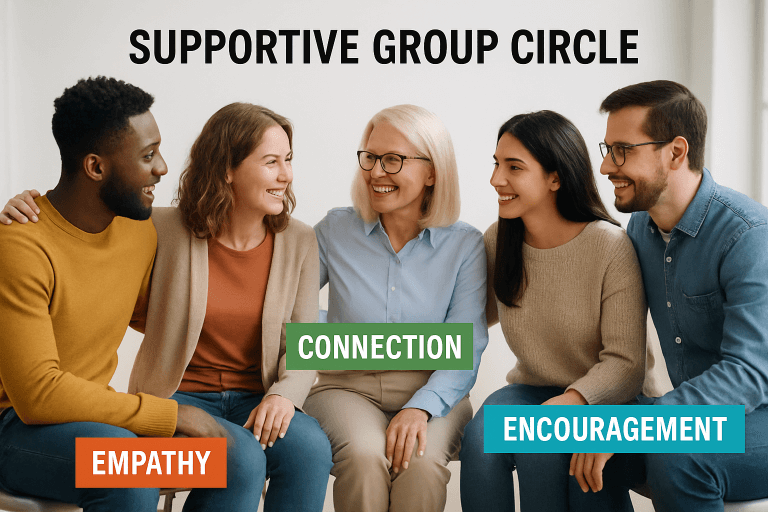Lifestyle
Effective Strategies for Long-Term Recovery Success
Published
4 months agoon
By
Samuel TingBuilding a strong support system, establishing routines, and developing adaptive coping skills is crucial for individuals in their recovery journey. These methods reinforce commitment, nurture mental health, and promote a balanced life beyond addiction when personalized.
Recovery is a life-affirming journey that requires ongoing commitment, thoughtful planning, and access to support systems. It’s not just about abstaining from substances; it’s about rebuilding one’s life and identity in meaningful, sustainable ways. For those looking to fortify their recovery efforts and discover practical approaches grounded in research and lived experience, reputable resources such as https://heartwoodrecovery.com/ can offer essential guidance. Because recovery is a lifelong process, having a comprehensive, adaptable strategy makes all the difference between lasting success and the risk of relapse.
Building a Strong Support Network
Recovery from addiction requires a strong connection, with open communication with family and friends fostering trust and empathy. Support groups provide a unique connection, offering regular meetings, mentorship, and a community for personal growth. Professional support, such as therapists and counselors, offers tailored assistance navigating emotional complexities. Therapy sessions provide insight into addictive patterns and strategies for self-regulation and resilience. Evidence-based approaches like cognitive-behavioral therapy or dialectical behavior therapy help manage triggers and address mental health concerns. Combining these support systems can lead to lasting change.

Establishing Healthy Routines
Consistent routines provide stability and reduce exposure to unpredictable situations, allowing individuals to focus on healing and growth. Integrating daily practices that nurture physical and mental wellness can buffer against stress, bolster resilience, and sharpen commitment to long-term sobriety. Regular exercise releases endorphins, relieves stress, and improves mood. A balanced diet stabilizes energy levels, improves concentration, and supports physical and mental health. A well-planned sleep pattern improves emotional regulation, patience, and cognitive functioning, making it easier to manage cravings and handle daily challenges. These practices are particularly important for recovery individuals.
Developing Coping Mechanisms
Long-term recovery involves managing stress, anxiety, and emotional turmoil without resorting to substance use. Developing healthy coping skills, such as mindfulness meditation, deep breathing exercises, and daily journaling, helps navigate difficult emotions and painful memories. Regular practice of mindfulness and self-compassion can increase resilience against relapse and sustain sobriety commitment. Over time, these coping mechanisms become second nature, providing a healthy emotional toolkit for future challenges.
Engaging in Meaningful Activities
Cultivating a sense of purpose and fulfillment in daily life goes a long way toward preventing relapse and building lasting sobriety. Discovering new hobbies, reconnecting with passions, volunteering, or pursuing personal interests provides joy and distraction from cravings. These activities replace the void that substances may have once filled and infuse everyday life with accomplishment and meaning. Whether learning a new instrument, painting, gardening, or participating in community service, meaningful engagement nurtures confidence and helps to reduce the desire for substance use naturally.
Continuous Personal Development
Recovery is about so much more than abstinence—it’s about continual personal growth and the pursuit of a richer, more independent life. Ongoing education, whether academic or vocational, is an excellent source of motivation and a means to reclaim one’s future. Participating in life skills programs or enrolling in career training enhances employability, supports independence, and boosts self-worth—qualities that are vital in making sobriety sustainable. Workshops and classes focused on communication, stress management, or financial literacy can bring about profound, positive changes, further empowering individuals to thrive in recovery and beyond.
Leveraging Community Resources
Many communities are rich with resources designed to support recovery. Affordable healthcare clinics, medication-assisted treatment programs, sober recreational groups, and job assistance centers can make a crucial difference as you transition back into independent living. Engaging with these resources—through local support agencies or online directories—makes it easier to access healthcare, find employment, and build connections in a safe environment. Community health programs, in particular, are often a valuable entry point for expanding social networks and maintaining long-term stability.

You may like

Comparing Traditional Loan Options vs Crypto Financing in Malaysia

Eczema, Psoriasis, and Allergies in Winter: Understanding Triggers and Treatments

Tip to Benefit Maximally From Your Tow Truck Course

Esports Arena Network Design: 1,000‑Seat LAN & AV Setup (2025 Guide)

Why Jeep Owners Are Switching to Automatic Tops Like eTop

Comparing Demat Account Providers: Which One Should You Choose?

How Anti‑Cheat SDKs Work (Kernel vs User Mode)

NDI vs SRT vs RTMP (2025): Which Stream Protocol Gives You the Lowest Latency for Esports Broadcasts?

New 240Hz 1440p Panels: What Changes for Players

